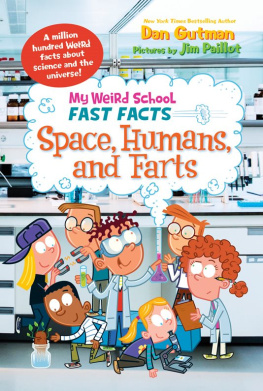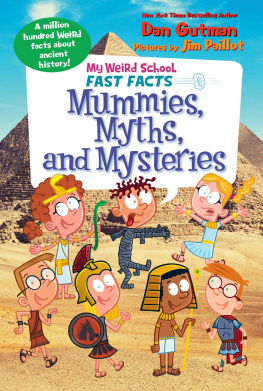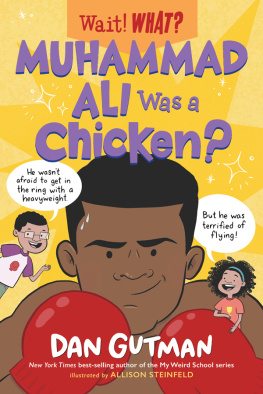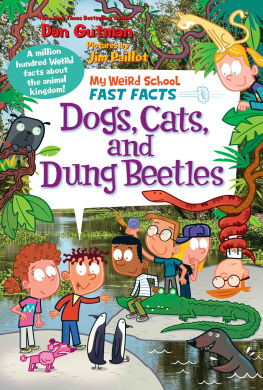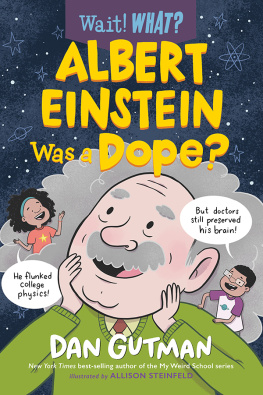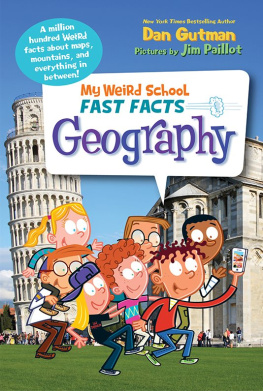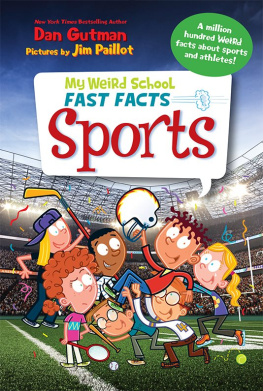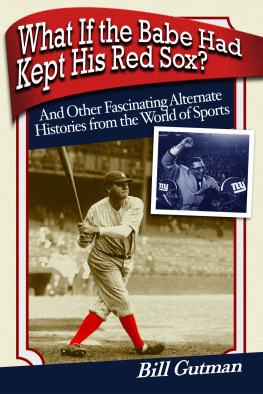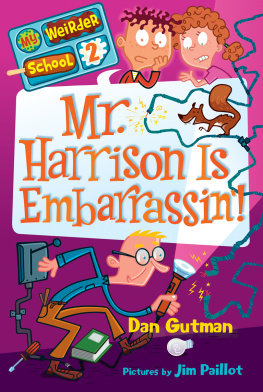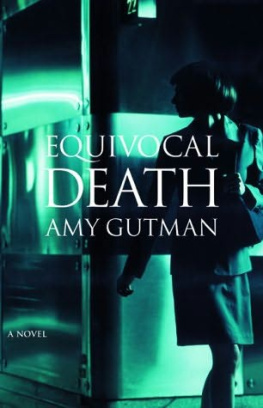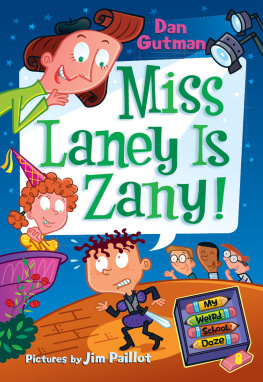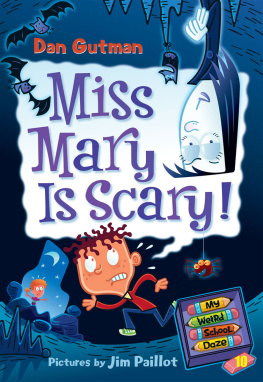Dan Gutman - Recycle this Book
Here you can read online Dan Gutman - Recycle this Book full text of the book (entire story) in english for free. Download pdf and epub, get meaning, cover and reviews about this ebook. year: 2009, publisher: Random House;Random House Childrens Books;Yearling, genre: Romance novel. Description of the work, (preface) as well as reviews are available. Best literature library LitArk.com created for fans of good reading and offers a wide selection of genres:
Romance novel
Science fiction
Adventure
Detective
Science
History
Home and family
Prose
Art
Politics
Computer
Non-fiction
Religion
Business
Children
Humor
Choose a favorite category and find really read worthwhile books. Enjoy immersion in the world of imagination, feel the emotions of the characters or learn something new for yourself, make an fascinating discovery.

- Book:Recycle this Book
- Author:
- Publisher:Random House;Random House Childrens Books;Yearling
- Genre:
- Year:2009
- Rating:4 / 5
- Favourites:Add to favourites
- Your mark:
- 80
- 1
- 2
- 3
- 4
- 5
Recycle this Book: summary, description and annotation
We offer to read an annotation, description, summary or preface (depends on what the author of the book "Recycle this Book" wrote himself). If you haven't found the necessary information about the book — write in the comments, we will try to find it.
Recycle this Book — read online for free the complete book (whole text) full work
Below is the text of the book, divided by pages. System saving the place of the last page read, allows you to conveniently read the book "Recycle this Book" online for free, without having to search again every time where you left off. Put a bookmark, and you can go to the page where you finished reading at any time.
Font size:
Interval:
Bookmark:
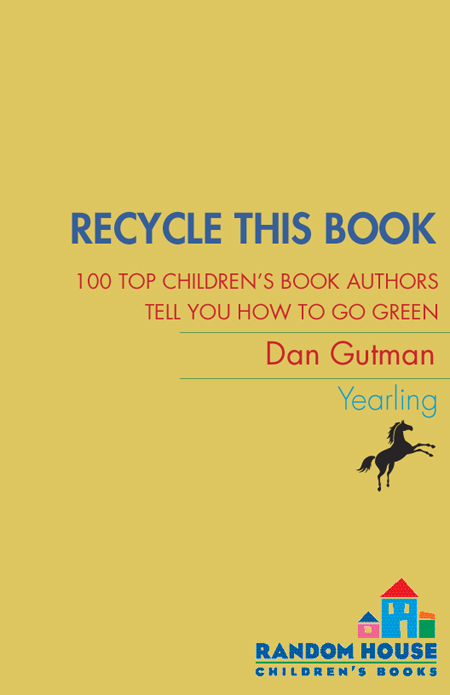

For more than forty years,
Yearling has been the leading name
in classic and award-winning literature
for young readers.
Yearling books feature children's
favorite authors and characters,
providing dynamic stories of adventure,
humor, history, mystery, and fantasy.
Trust Yearling paperbacks to entertain,
inspire, and promote the love of reading
in all children.
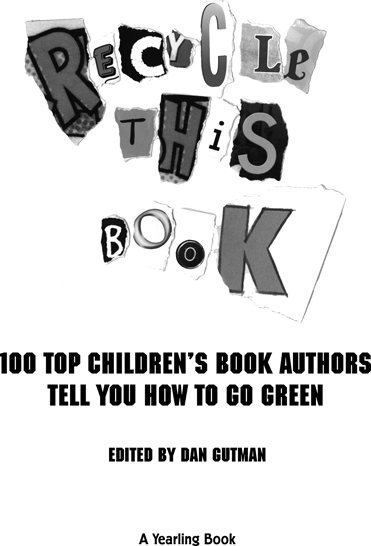
PART ONE:
PART TWO:
PART THREE:
PART FOUR:
I was thinkingwhat's the biggest problem facing the world?
Terrorism? Poverty? Drugs? Crime?
No. In my opinion, the biggest problem facing the world is the world itself. Because if we mess up this planet, none of those other problems is going to matter.
Well, I hate to tell you this, but we are messing up this planet.
You've heard a lot about global warming, the energy crisis, oil dependency, melting ice caps, stranded polar bears, rain forests being burned, species becoming extinct, droughts, floods, forest fires, and hurricanes. This is scary stuff. We've got to do something.
You've got to do something.
Maybe you're thinking, I didn't cause these problems. Why do I have to solve them?
I'll tell you why. In a decade, more or less, you're going to be a young adult. You'll have plenty of responsibilities because it will be your world. The people who brought on all these problems (that would be my generation and my parents generation) might not be around to fix them.
Have you ever gone camping? If you haven't, you need to know that you're supposed to leave the campsite in better condition than it was when you arrived. Earth is our campsite. Sorry to say, but your grandparents and parents have not taken very good care of Earth. Your generation needs to clean up the mess, because there's no other campsite.
The good news is, there's a solution to our environmental problems. In fact, there are hundreds of solutionsright here in your hand. Lots of grown-ups care deeply about this planet, and many of them just happen to be the authors of books you know and love. I contacted a hundred children's book authors and asked them what they do to save energy, reduce waste, or help the environment. This book features the words of those authors.
Some of the essays are serious. Some are funny. Some are angry. All are interesting and useful. And after you finish reading them, it's time to act. You are going to be part of the group that changes the world.
Me? What can I do? is probably what you're thinking. I know. When you're a kid, you sometimes feel powerless in a world run by grown-ups. It's hard to stay up past your bedtime or get your allowance raised.
But kids can change the world.
Years ago, kids organized on college campuses and helped focus attention on ending the Vietnam War. And college kids were also involved with the invention of the personal computer and started Microsoft and Google. Young people fight our wars. Teenagers create our music. Kids determine what kinds of television shows get popular, and which movies, too. Kids make a difference.
Believe it or not, politicians do listen to citizens. Business leaders do listen to customers. Teachers do listen to students. And parents do listen to children.
When you were younger, your parents taught you how to ride a bike, how to tie your shoes, and how to catch a ball. Now it's up to you to educate them. Kids often teach their parents how to use computers, cell phones, DVD players, and other technologies so many adults find baffling. Parents need to be taught about the environment the same way. And kids are the ones who need to teach them.
You need to talk to your parents and discuss how to conserve gas, save energy, and reduce waste. You need to tell your representative in Congress to pass laws that reward cities and companies for switching to renewable sources of energy. You need to punish companies and governments that cut down rain forests, pollute air and water, drive animals and plants to extinction, and threaten the very existence of the human race.
Don't say It's impossible! The job is just too big!
Think again. When I was five years old, President John F. Kennedy gave a speech in which he challenged America to send a person to the moon within ten years. It sounded impossible at the time. We hadn't even been into space yet. But Kennedy's words captured the imagination of the country. A massive national effort was undertaken, and eight years later, Neil Armstrong put his foot on the moon and said, That's one small step for a man, one giant leap for mankind.
Now we need to undertake another massive national effort. America needs to switch from fossil fuels to renewable sources of energy. That would be an even bigger leap for humanity than stepping on the moon was. And it can be done.
How?
First by changing attitudes, and then by changing laws.
Attitudes can change. When I was a kid, there were still places in America where black and white people were not allowed to drink from the same water fountain. You can believe that because you've studied our history in school. There were separate hotels, restaurants, and bathrooms for different races.
Our country isn't perfect today, but we've made some progress. Attitudes about prejudice and discrimination have dramatically changed, and laws have changed along with them. Attitudes and laws about the environment can change, too, and kids can lead the way.
What can I do?
Educate your parents. Most grown-ups don't realize how serious our environmental problems are. They're busy with their jobs, trying to put food on the table for you every day. They may be caring for your grandparents, too. It's not as easy as it looks being a parent.
But you know how serious the world's problems are, because you're reading this book. Your parents care deeply about you and your future. If you tell them that something is important to you, they will listen.
Talk to them about the ideas in these pages. Insist that taking action is vital. The next time your mother tells you to clean your room, tell her you will when she helps clean up the atmosphere.
We all need to change our attitude. When we turn on the TV, we're bombarded by commercials that give the impression our lives will be better if we buy new toys, cars, shampoos, DVDs, pimple creams, and all kinds of other stuff.
Wrong.
What will truly make our lives better? Clean air to breathe, clean water to drink, and people around the world who aren't homeless, starving, and dying. In fact, scientists have found that once our basic needs (food, shelter, water, clothing) are met, buying things does not make us much happier.
Change is hard. When the automobile was invented, people who made buggies and horse collars didn't want to change. When the computer was invented, the typewriter companies didn't want to change. But they had to.
Human beings are going to have to change, whether we want to or not. It's just a question of whether we change now, when we still have time, or later, when it may be too late.
If you saw the movie Titanic, you know that the ship slammed into the iceberg because the lookouts didn't see it until they were almost upon it. If they had seen the iceberg in the distance, the captain could have steered the ship around it. We are on a collision course with environmental disaster, and we are running out of time to steer around it. We need to begin a program to switch to alternative sources of energy now. Each day we delay will make the switch more difficult.
Font size:
Interval:
Bookmark:
Similar books «Recycle this Book»
Look at similar books to Recycle this Book. We have selected literature similar in name and meaning in the hope of providing readers with more options to find new, interesting, not yet read works.
Discussion, reviews of the book Recycle this Book and just readers' own opinions. Leave your comments, write what you think about the work, its meaning or the main characters. Specify what exactly you liked and what you didn't like, and why you think so.


